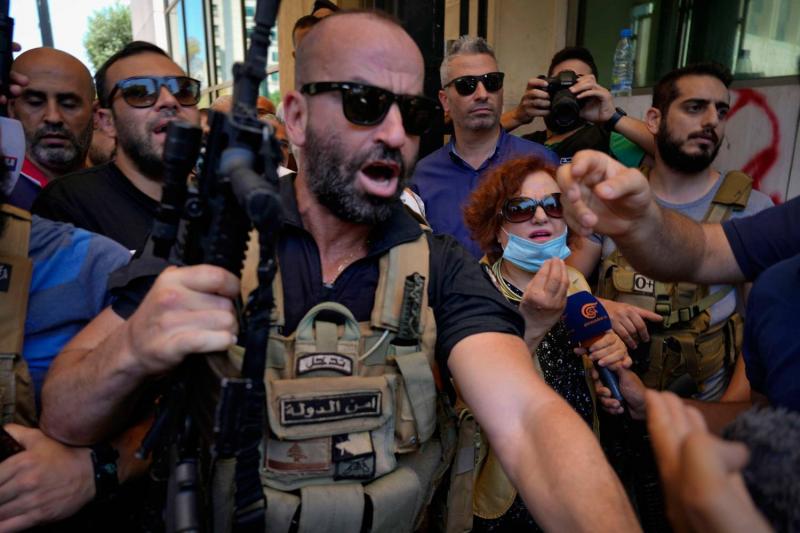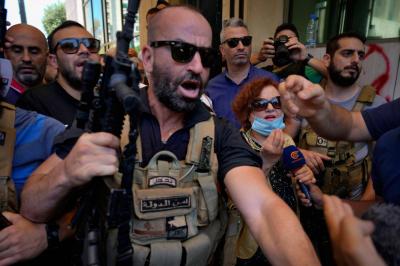Following his announcement of a solution to the banking crisis that is supposed to restore banking operations within 48 hours, caretaker Prime Minister Najib Mikati sent a letter to Interior and Municipalities Minister Bassam Mawlawi, requesting that no assistance be provided or any order from Judge Ghada Aoun executed in any case where a claim against the state regarding Aoun's actions has been filed, until a judicial authority decides on the request. Based on Mikati's letter, which called for necessary measures to be taken in accordance with applicable laws and regulations to ensure compliance and preserve the proper functioning of justice, Mawlawi issued a directive to the General Directorate of Internal Security Forces and the General Directorate of General Security, urging them to adhere to the Prime Minister's request.
In response, Judge Ghada Aoun appealed to international authorities in the European Parliament for help in upholding the rule of law, indicating that "Prime Minister Najib Mikati is openly interfering in justice to halt the investigations I am conducting into banking and money laundering cases, by asking Interior Minister Bassam Mawlawi not to act on orders from the prosecutor of Mount Lebanon." However, Mikati's media office quickly responded with a statement emphasizing that the Prime Minister has not and will not interfere in judicial matters. It clarified that Mikati based his statement on letters he received detailing violations attributed to certain judges. He faithfully conveyed the content of those letters and requested, "based on his constitutional position and his concern for the enforcement of the law and the maintenance of justice," that the Interior Minister take necessary measures allowed by the law to ensure compliance and maintain the integrity of justice.
Mikati reaffirmed that the competent judiciary retains its authority to carry out its duties independently, without intervention from any authority, provided that such actions remain within the framework of the law and do not constitute a blatant violation of legal norms. He emphasized the collective responsibility to safeguard the banking sector while ensuring that no bank is exempt from investigation or accountability in the event of proven violations, following due process protected by the constitution and the law.
Before this, Judge Aoun tweeted: "Good morning and justice, O Lord. Regarding the Hasan loan, which I am accused of not addressing every day, please a bit of legal information. If it is proven that this institution is a bank, then the central bank must verify that and certainly file a lawsuit before the Financial Public Prosecutor based on the Monetary and Credit Law. Concerned parties, please act in this direction. That’s all."
Meanwhile, Bank of Beirut responded in a statement to an article in the newspaper "Al-Akhbar," which claimed: "The achievements of the governor: when Salameh gifted $400 million to Salim Safa." The statement described the article as unjustly defaming the merger of Bank of Beirut and the Arab Bank, which occurred 21 years ago, pursuant to Law No. 192. The article’s title suggested that the central bank gifted Dr. Salim Safa, while the body of the report illustrated that the amount was a loan repaid by Bank of Beirut to Bank of Lebanon. The bank concluded that the article's contradictory title is part of a systematic campaign against the Lebanese banking sector that has intensified in recent months, particularly following the burning of bank branches on Badaro Street on February 6 by individuals who are not depositors, as clarified by the Prime Minister, in conjunction with legal pursuits devoid of legal safeguards, as indicated by a statement from the Association of Lebanese Banks on February 20, 2023, which is one reason for the banking sector's strike.




